President Trump is not pleased with what’s going on in Congress, to say the least. As far as he’s concerned, the investigations in Congress are “a witch hunt,” a “fishing expedition,” “presidential harassment,” and a “hoax.”
But the congressional investigation was not invented to harass Donald Trump. In the 1920s, the Teapot Dome scandal investigations targeted President Warren G. Harding’s Administration and in the 1970s the Watergate investigations targeted President Richard Nixon. Congress has stepped into big, thorny investigations often, buttressed by Article I, Section 8 of the Constitution and by a 1938 Supreme Court decision that says; “A legislative inquiry may be as broad, as searching and as exhaustive as is necessary to make effective the constitutional powers of Congress…”[1]
In other words, one man’s fishing expedition is another’s constitutional duty.
Professor Paul Light of New York University has written an important and thorough paper on the major congressional investigations since World War II. His emphasis is on impact, something that the breathless coverage of yet one more hearing too often neglects. In other words, does the investigation do something more than create headlines; does it solve a problem? Does it “repair or prevent breakdowns?”
Light’s answer: not as much as we’d like them to. In fact, Light writes, “House investigations produced modest impacts at best.” Light finds that of the 31 major investigations he reviewed, “34 percent had no significant impact at all, another 31 percent were only somewhat significant, 22 percent were moderately significant, and just 13 percent were very significant.”
From his research into investigations Light distills ten characteristics of “a good investigation:” length, bipartisanship, breadth, thoroughness, freedom to investigate, visibility, leadership, seriousness, leverage and durability. Not surprisingly, these qualities are correlated to impact. For instance, longer investigations “produced a higher count of very significant impact than shorter ones.” Bipartisanship had “twice the impact of partisan investigations.” (Given the vitriolic response of the Republicans to the Michael Cohen hearing we are probably far away from bipartisanship.) President Trump, who has long complained about “fishing expeditions,” has tried to argue that the investigations be limited in their scope. However, Light shows that broader investigations and investigations with a high degree of freedom result in more consequential impacts.
As the Democrats begin what will likely be months of investigations, they should pause to think about Paul Light’s work—especially his recommendations. In order to increase the impact of House investigations he argues that the House should create a “Select Committee on Investigatory Practice” to go along with the House Committee on the Modernization of Congress. This committee would create training materials for new investigators and tap into the wealth of experience contained in places like the newly created Levin Center at Wayne State University.
He also argues that the House should ask its committees to conduct “vulnerability assessments” during the appropriations process, as a way of examining the risk of future breakdowns. (I especially like this idea and wrote about the need for a congressional oversight office as an early warning system for Congress to use in its oversight of the Executive Branch.)
Light argues that the House should “encourage committees to bundle investigations of government breakdowns that involve similar causes and effects.” This would increase the chances of creating remedies that help all parts of government.
And he urges the GAO to convert its “‘high-risk list’ of troubled federal agencies and programs into a road map for future investigations.” This is an especially important idea given that although the high-risk list contains some of the government’s most important functions (i.e. food safety and security clearance), and is kept current every two years, it never seems to prompt significant congressional action.
Good investigations are at the heart of Congress’ oversight responsibilities. But investigation divorced from problem solving or impact falls short of its constitutional mandate.
[1] Article I, Section 8 of the Constitution gives Congress the power to “make all Laws which shall be necessary and proper for carrying into Execution the foregoing Powers.” The Supreme Court case is [Townsend v. United States, 95 F .2d 352, 361 (D.C. Cir)]
The Brookings Institution is committed to quality, independence, and impact.
We are supported by a diverse array of funders. In line with our values and policies, each Brookings publication represents the sole views of its author(s).

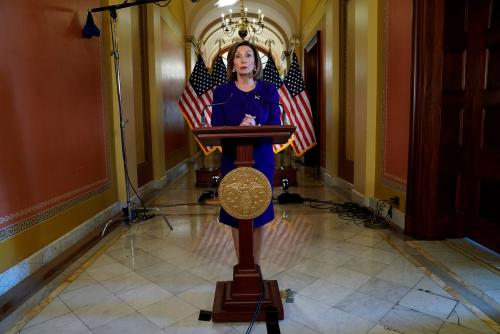
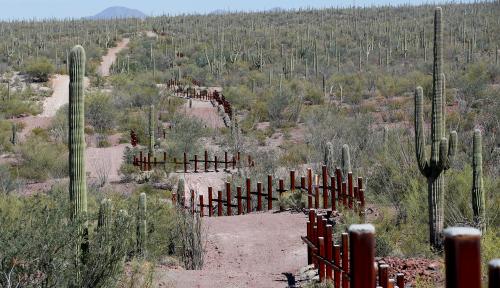
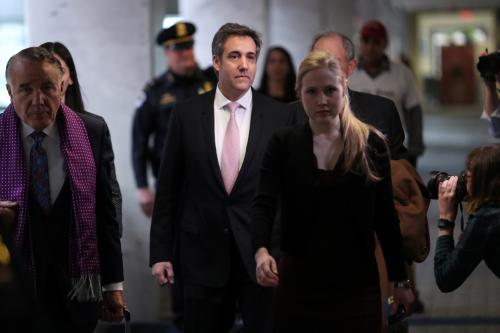
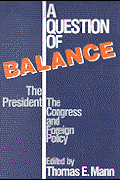
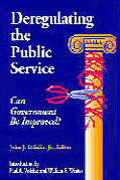
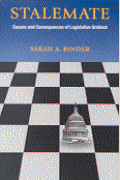




Commentary
Congressional investigations: Presidential harassment or constitutional duty?
March 8, 2019